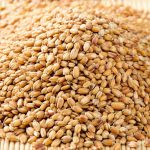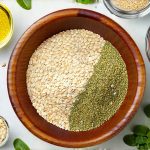Our digestive system is a remarkably complex process, often working seamlessly in the background while we go about our daily lives. What many people don’t realize is how significantly the foods we choose to eat impact this intricate system, influencing not just gut health but overall well-being. For decades, refined grains dominated diets, but there’s been a growing awareness of the benefits of returning to more traditional, whole grain options. Understanding why whole grains play such a vital role in healthy digestion is key to making informed dietary choices and supporting our bodies naturally. This article will delve into the specific ways whole grains contribute to efficient and comfortable digestion, offering insights that go beyond simple fiber content.
The modern diet often lacks the nutritional depth found in traditional eating patterns, contributing to digestive issues for many. Incorporating whole grains isn’t just about adding ‘healthy food’; it’s about restoring a foundational element of good gut function. This restoration can lead to improved regularity, enhanced nutrient absorption, and even a stronger immune system—all stemming from the unique composition of these nutritional powerhouses. Let’s explore how they do this, and why choosing whole grain over refined is so important for digestive health.
The Composition of Whole Grains & Digestive Benefits
Whole grains are fundamentally different from their refined counterparts. A whole grain contains all three parts of the kernel: the bran, the germ, and the endosperm. Refined grains, on the other hand, have had the bran and germ removed, stripping away much of the fiber, vitamins, minerals, and antioxidants. This impacts digestion significantly because it’s the combination of these elements that provides the complete digestive support system. The bran is rich in insoluble fiber, promoting regularity and adding bulk to stool. The germ contains essential nutrients like B vitamins, vitamin E, and healthy fats, contributing to overall gut health. And the endosperm provides carbohydrates for energy, but without the balancing act of fiber and nutrients found in a whole grain.
The presence of both soluble and insoluble fiber is particularly important. Insoluble fiber adds bulk, speeding up the passage of food through the digestive tract and preventing constipation. Soluble fiber dissolves in water to form a gel-like substance, which helps soften stool and can also help lower cholesterol levels. This combination ensures a balanced approach to digestion, addressing both regularity and overall gut health. Beyond simply moving things along, the fiber in whole grains acts as food for beneficial bacteria in the colon, fostering a thriving microbiome – a critical component of digestive wellbeing.
Consider oats as an example; they contain beta-glucan, a type of soluble fiber known to support healthy cholesterol levels and promote a feeling of fullness, which can also indirectly aid digestion by preventing overeating. Similarly, brown rice offers more fiber than white rice, leading to slower glucose absorption and reduced spikes in blood sugar – benefits that extend to digestive comfort.
The Gut Microbiome & Whole Grain Consumption
The gut microbiome is the collection of trillions of microorganisms living in our digestive tract. It’s increasingly recognized as a vital organ, impacting everything from immunity to mental health. A healthy gut microbiome thrives on diversity and receives nourishment primarily from the food we eat. This is where whole grains shine. Unlike refined carbohydrates which are quickly digested and offer little for beneficial bacteria, the complex carbohydrates and fiber in whole grains provide a pre-biotic effect – essentially feeding the good bacteria in our gut.
When these beneficial bacteria flourish, they produce short-chain fatty acids (SCFAs) like butyrate, propionate, and acetate. Butyrate is especially important for colon health, providing energy for the cells lining the colon and reducing inflammation. A thriving microbiome also strengthens the intestinal barrier, preventing ‘leaky gut’ syndrome where harmful substances can escape into the bloodstream. This creates a stronger, more resilient digestive system overall. Regularly consuming whole grains isn’t just about feeding us; it’s about nurturing the ecosystem within us that plays such a critical role in our health.
Types of Whole Grains & Their Specific Benefits
There’s a wide variety of delicious and nutritious whole grains available, each offering unique benefits beyond the general digestive advantages. Quinoa, for example, is a complete protein source and provides a good amount of fiber, making it an excellent choice for sustained energy and healthy digestion. Barley contains beta-glucans similar to oats, further supporting gut health and cholesterol management. Spelt, an ancient grain, offers a slightly nutty flavor and is often easier to digest than wheat for some individuals due to its different gluten structure.
Choosing a variety of whole grains ensures you’re getting a broader spectrum of nutrients and prebiotics, fostering greater microbiome diversity. Experimenting with different options can also make incorporating whole grains into your diet more enjoyable and sustainable. Remember that “whole grain” should be listed as the first ingredient on food labels to ensure you’re truly receiving the benefits – avoid products labeled ‘multi-grain’ which may contain mostly refined grains.
Addressing Digestive Sensitivities & Whole Grains
While generally well-tolerated, some individuals experience digestive discomfort with certain whole grains due to sensitivities or intolerances. Gluten is a common culprit for those with celiac disease or non-celiac gluten sensitivity. In these cases, choosing naturally gluten-free whole grains like quinoa, brown rice, buckwheat, and amaranth is essential. Even without a diagnosed sensitivity, some people may experience bloating or gas from the high fiber content of certain grains initially.
Introducing whole grains gradually and drinking plenty of water can help minimize these symptoms. Starting with smaller portions and slowly increasing intake allows your digestive system to adjust. Fermenting grains (like in sourdough bread) can also improve digestibility for some individuals, breaking down gluten and phytic acid – a compound that can interfere with nutrient absorption. Listening to your body and choosing the whole grain options that work best for you is key.
Long-Term Digestive Health & Preventative Measures
Incorporating whole grains into your diet isn’t just about addressing current digestive issues; it’s an investment in long-term health. A consistently healthy gut microbiome, nurtured by whole grains and other fiber-rich foods, can reduce the risk of chronic diseases like colon cancer, heart disease, and type 2 diabetes. The anti-inflammatory properties of SCFAs produced by beneficial bacteria play a key role in this preventative effect.
Furthermore, prioritizing whole grain consumption encourages mindful eating habits – focusing on nutrient-dense foods rather than processed options. This holistic approach to nutrition creates a virtuous cycle, supporting not only digestive health but also overall wellbeing and vitality.
Ultimately, the power of whole grains extends far beyond simple fiber content. They are vital components of a healthy diet that support a thriving gut microbiome, promote regularity, and contribute to long-term preventative health. By understanding their unique benefits and incorporating them thoughtfully into our meals, we can nourish both our bodies and our digestive systems for years to come.


















